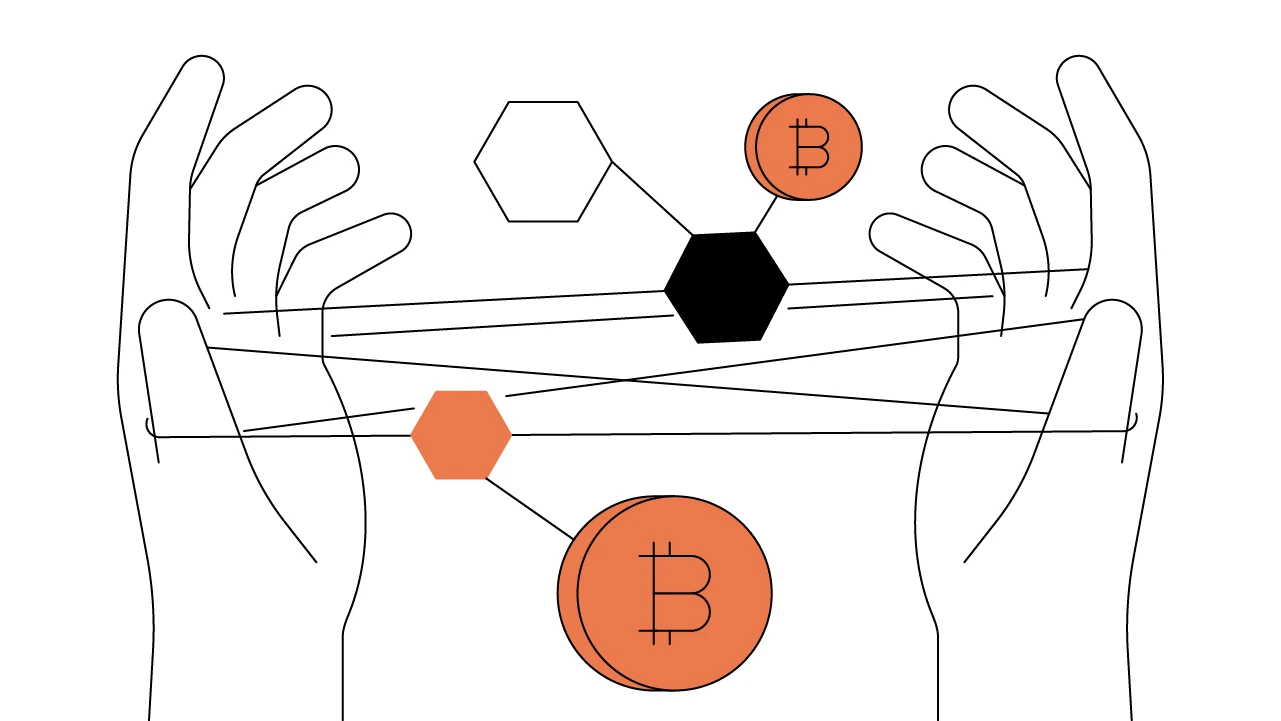Contents
Status: A Mobile Interface for the Ethereum Ecosystem
Status is an open-source platform that combines peer-to-peer instant messaging, a crypto wallet, and a multifunctional Web3 browser.
Updated May 19, 2021 • 4 min read

Summary
Status is an open-source mobile app for iOS and Android that provides access to Ethereum’s growing ecosystem of decentralized applications (dApps), peer-to-peer instant messaging, a crypto wallet, and a Web3 browser. Status’ development is determined by holders of the project’s native governance token, Status Network Token (SNT), which grants holders the right to submit and vote on new proposals to shape the network’s future.
Contents
Status’ User-Centric Approach
Status is an open-source messaging platform and mobile interface that provides streamlined access to Ethereum’s growing ecosystem of decentralized applications (dApps) from within an iOS and Android-friendly app that combines peer-to-peer instant messaging, a crypto wallet, and a Web3 browser. Since launching in 2017, Status has provided a mobile portal to the Ethereum ecosystem and a unique messaging platform with a wide range of advanced features. In providing a mobile-friendly on-ramp into the Ethereum ecosystem, Status offers a unified user experience across platforms, user-centric data and advertising models, and access to the next generation of blockchain-enabled financial and legal services.
The Status App Is More Than Messaging
While Status Network is often described as a social media platform, in reality the project is developing a broad set of features that coalesce into a one-stop gateway to the Ethereum network. Generally speaking, Status’ offering can be broken down into three primary functions:
dApp curation: As of 2020, the Ethereum blockchain hosts nearly 2,000 active dApps, and navigating this vast collection of applications can be overwhelming. Status aims to be a hub for any type of Ethereum-related activity and has developed multiple features that enable users to browse and interact with Ethereum’s dApps.
Secure messaging: Status offers both public chats and secure, end-to-end encrypted private messaging through a peer-to-peer network rather than centralized servers, ensuring that no one apart from you and your intended recipients can view a private message. Furthermore, since messaging on Status takes place through a decentralized network, it is censorship-resistant and resilient, given that the network is not subject to a single point of failure. As a result, Status ensures that users maintain full control of their own communications.
Digital asset management: The Status Network offers a secure cryptocurrency wallet, allowing users to send payments to contacts anywhere on the globe directly through chats. Status users’ chat and wallet keys are not connected in any way, meaning that even if your chat key is somehow compromised, your funds will remain secure. As a result, Status enables you to maintain a close eye on your crypto assets, while maintaining the ability to effortlessly facilitate secure, borderless payments.
The Status app has packaged these features with iOS and Android compatibility that combines all of the above with a Web3 browser. This approach embodies the company’s goal of delivering the benefits of blockchain-enabled applications to the broader market. And, while Status’ app is its flagship offering, the company is also developing a number of other products, including Keycard, a hardware wallet that functions similarly to a contactless debit or credit card. Status is also working towards releasing Teller, a decentralized peer-to-peer fiat-to-crypto exchange.
Additionally, Status intends to disrupt the existing advertising model used on the Internet, which heavily favors corporations over individual users. With Status, you choose how much time, attention, and data you want to share with advertisers and other third parties, in exchange for tangible services on the platform — or you can opt to pay for services without sharing data or receiving advertisements from third parties at all. As a result, Status is not only improving the way users interact with blockchain-based applications, but aims to pioneer a more egalitarian, user-centric, and equitable online experience.
Status, the SNT Token, and Governance
Status’ app is an open-source product that operates on a freemium model, and does not require users to provide a phone number, email address, or bank account when creating an account. However, since Status Network does not profit from selling ads or sharing personal user data with third parties, the platform charges users microtransactions for notifications and storage in order to fund the project’s operational costs.
Furthermore, Status is a decentralized autonomous organization (DAO), which means that the project does not rely on a centralized governing authority. Instead, Status Network community members have full control over development, such as which ecosystem features will be implemented or modified. This community-led governance model is enabled through Status’ native ERC-20 token, Status Network Token (SNT). SNT token holders can initiate and vote on proposals for how the project should be developed. Proposals can be submitted by any stakeholder on the Status Network, and the weight of community members’ votes is proportionate to the quantity of SNT tokens they hold. At the network's inception, the community voted primarily on software-related matters. However, as the network continues to grow, the community will likely need to confront and resolve increasingly complex issues, both socially and structurally.
SNT is also used to access and power decentralized services on the Status Network. This includes paying for basic services such as forwarded messages and offline messages, as well as using dApps such as Status’ Teller Network, which allows SNT holders to find nearby users to exchange their cash for digital currency and assets. SNT is also used to incentivize and reward network participants to run nodes, which helps ensure that the Status platform will continue to operate smoothly even if all the nodes in the Status-hosted cluster are offline.
How the Status Social Network Builds Trust
There are many features on the Status crypto platform that are designed to safeguard user security and ensure trust. A primary method is the Tribute-to-Talk process, an anti-spam mechanism that requires you to deposit SNT tokens as collateral to message an out-of-network user with whom you haven’t yet communicated. If the user validates your message, the collateral is returned. If the message recipient does not respond, the tokens are awarded to the recipient. This discourages the creation of fake accounts and spam messages on the network.
Additionally, Status implements a reputation model whereby stakeholders can deposit tokens to boost another user’s reputation — a digital version of vouching for someone, which contributes to building a web of trust among users on the Status Network. Discussion groups can even set a minimum reputation score as a requirement to join their group, which substantially increases the cost of maintaining active fake accounts.
To bolster account security, Status creates a unique public key username for every user, while providing a unique method to recover accounts in the case of lost devices or inaccessibility. Users are given five recovery keys, which can be shared with other trusted individuals. A combination of any three of these keys can be used to recover the account. This safeguards against one of the common problems and fears associated with blockchain wallets: that a single point of failure can result in a permanent loss of assets.
Status Network Is Changing the Status Quo
Status’ multi-pronged offering encompasses elements of messaging, social media, crypto wallets, and an app store for the Ethereum ecosystem — all in one mobile portal. By prioritizing privacy, censorship-resistance, and community-driven development, Status provides a user-driven alternative to the current standards on the Internet.
Cryptopedia does not guarantee the reliability of the Site content and shall not be held liable for any errors, omissions, or inaccuracies. The opinions and views expressed in any Cryptopedia article are solely those of the author(s) and do not reflect the opinions of Gemini or its management. The information provided on the Site is for informational purposes only, and it does not constitute an endorsement of any of the products and services discussed or investment, financial, or trading advice. A qualified professional should be consulted prior to making financial decisions. Please visit our Cryptopedia Site Policy to learn more.

Is this article helpful?


